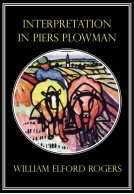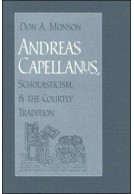Marie de France and the Poetics of Memory (Hardback)
Imprint: Catholic University of America Press
Pages: 224
ISBN: 9780813215099
Published: 29th February 2008
Script Academic & Professional
Pages: 224
ISBN: 9780813215099
Published: 29th February 2008
Script Academic & Professional
You'll be £14.95 closer to your next £10.00 credit when you purchase Marie de France and the Poetics of Memory. What's this?
+£4.99 UK Delivery or free UK delivery if order is over £40
(click here for international delivery rates)
Order within the next 3 hours, 44 minutes to get your order processed the next working day!
Need a currency converter? Check XE.com for live rates
(click here for international delivery rates)
Order within the next 3 hours, 44 minutes to get your order processed the next working day!
Need a currency converter? Check XE.com for live rates
"Marie de France and The Poetics of Memory" presents the first exhaustive treatment of the rhetorical use of description and memory in all the narrative works of the late 12th-century poet, Marie de France - the first woman to compose literary texts in French. Though she had no access to treatises devoted solely to the arts of memory that were to develop in the centuries following her own, she nonetheless exemplifies some of the same techniques that are extolled by their authors. Logan E. Whalen's insightful study begins with a discussion of Marie's literary plan in light of classical rhetoric and the art of inventio, or literary topical invention, that developed in the Middle Ages. He then demonstrates how the fifty-six-line prologue that precedes Marie de France's "Lais" gives an outline of her literary plan, not only for the narrative texts that follow in that particular collection, but also for the whole of her poetic corpus. Marie's use of description in the "Lais" shows the way in which she creates an imaginative locus that is conducive to memory through her elaborate descriptions of people, animals, places, events, and an assortment of inanimate objects. Her "Fables" is examined in light of the way in which scribes and illuminators of the centuries that immediately followed the composition of these texts interpreted them scripturally and iconographically. Finally, Whalen compares the structure of memory and description in the two works the Espurgatoire seint Patriz and the "Vie seinte Audree" - a text that has traditionally been ascribed to an anonymous author but that has recently been argued to be a fourth text by Marie de France.
Other titles in Catholic University of America Press...















